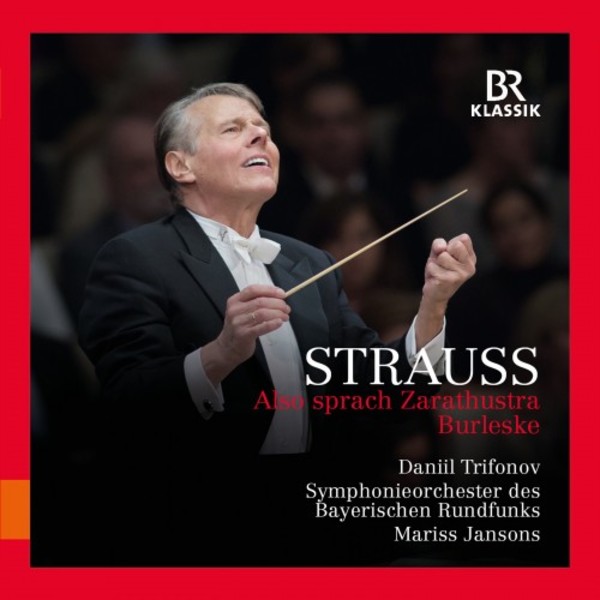
R Strauss - Also sprach Zarathustra, Burleske
£13.25
In stock - available for despatch within 1 working day
Despatch Information
This despatch estimate is based on information from both our own stock and the UK supplier's stock.
If ordering multiple items, we will aim to send everything together so the longest despatch estimate will apply to the complete order.
If you would rather receive certain items more quickly, please place them on a separate order.
If any unexpected delays occur, we will keep you informed of progress via email and not allow other items on the order to be held up.
If you would prefer to receive everything together regardless of any delay, please let us know via email.
Pre-orders will be despatched as close as possible to the release date.
Label: BR Klassik
Cat No: 900182
Format: CD
Number of Discs: 1
Genre: Orchestral
Release Date: 31st January 2020
Contents
Artists
Daniil Trifonov (piano)Symphonieorchester des Bayerischen Rundfunks
Conductor
Mariss JansonsWorks
Also sprach Zarathustra, op.30Burleske in D minor for piano and orchestra
Artists
Daniil Trifonov (piano)Symphonieorchester des Bayerischen Rundfunks
Conductor
Mariss JansonsAbout
Strauss’s Burleske for piano and orchestra sounds completely different. It was composed a decade earlier in 1885/86, when the 21-year-old composer had just begun his first job as Kapellmeister of the Meiningen Court Orchestra and as the assistant of Hans von Bülow. Originally referred to as “Scherzo” (Strauss also called it a “Piano Concerto” in a letter to his mother), the work was dedicated to Strauss’s mentor, von Bülow. It was first performed in Eisenach in 1890 by the piano soloist Eugen d’Albert. The themes are cheerful and “burlesque”, and the solo instrument and the orchestra perform together in the best sense. The music shows us Strauss in an early phase – he had not yet linked his compositional technique to that of Liszt and Wagner. In the year the work was premiered, Strauss himself referred to the Burleske as a work that “he had left far behind him”. Only rarely performed for many years, the work regained popularity over the past two decades, thanks not least to Glenn Gould.
Documenting the first collaboration between brilliant pianist Daniil Trifonov and the Symphonieorchester des Bayerischen Rundfunks conducted by Mariss Jansons.
Live recording from Munich’s Herkulessaal, October 2017
Error on this page? Let us know here
Need more information on this product? Click here